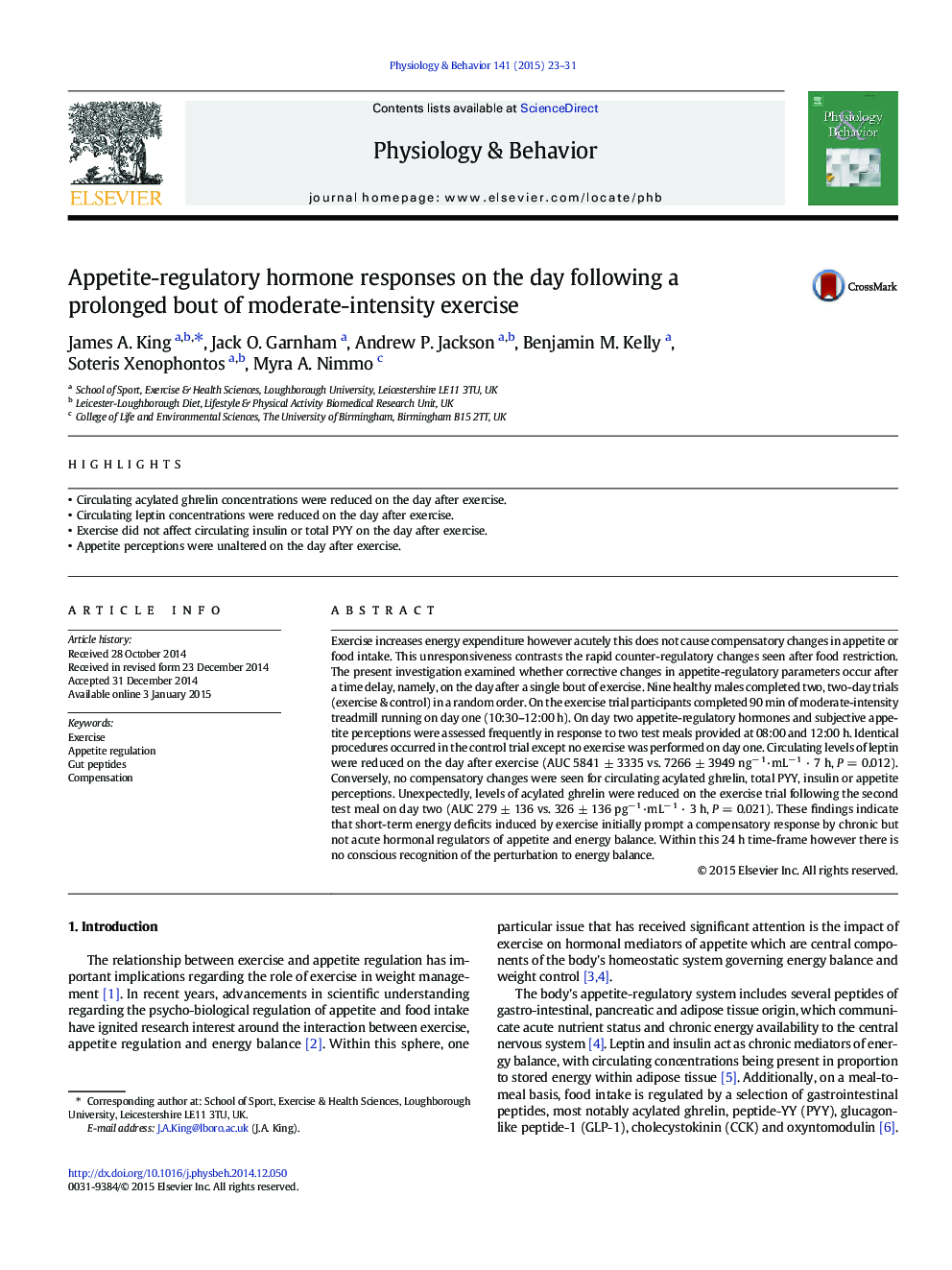| کد مقاله | کد نشریه | سال انتشار | مقاله انگلیسی | نسخه تمام متن |
|---|---|---|---|---|
| 5923732 | 1571176 | 2015 | 9 صفحه PDF | دانلود رایگان |
- Circulating acylated ghrelin concentrations were reduced on the day after exercise.
- Circulating leptin concentrations were reduced on the day after exercise.
- Exercise did not affect circulating insulin or total PYY on the day after exercise.
- Appetite perceptions were unaltered on the day after exercise.
Exercise increases energy expenditure however acutely this does not cause compensatory changes in appetite or food intake. This unresponsiveness contrasts the rapid counter-regulatory changes seen after food restriction. The present investigation examined whether corrective changes in appetite-regulatory parameters occur after a time delay, namely, on the day after a single bout of exercise. Nine healthy males completed two, two-day trials (exercise & control) in a random order. On the exercise trial participants completed 90 min of moderate-intensity treadmill running on day one (10:30-12:00 h). On day two appetite-regulatory hormones and subjective appetite perceptions were assessed frequently in response to two test meals provided at 08:00 and 12:00 h. Identical procedures occurred in the control trial except no exercise was performed on day one. Circulating levels of leptin were reduced on the day after exercise (AUC 5841 ± 3335 vs. 7266 ± 3949 ngâ 1·mLâ 1 · 7 h, P = 0.012). Conversely, no compensatory changes were seen for circulating acylated ghrelin, total PYY, insulin or appetite perceptions. Unexpectedly, levels of acylated ghrelin were reduced on the exercise trial following the second test meal on day two (AUC 279 ± 136 vs. 326 ± 136 pgâ 1·mLâ 1 · 3 h, P = 0.021). These findings indicate that short-term energy deficits induced by exercise initially prompt a compensatory response by chronic but not acute hormonal regulators of appetite and energy balance. Within this 24 h time-frame however there is no conscious recognition of the perturbation to energy balance.
Journal: Physiology & Behavior - Volume 141, 15 March 2015, Pages 23-31
